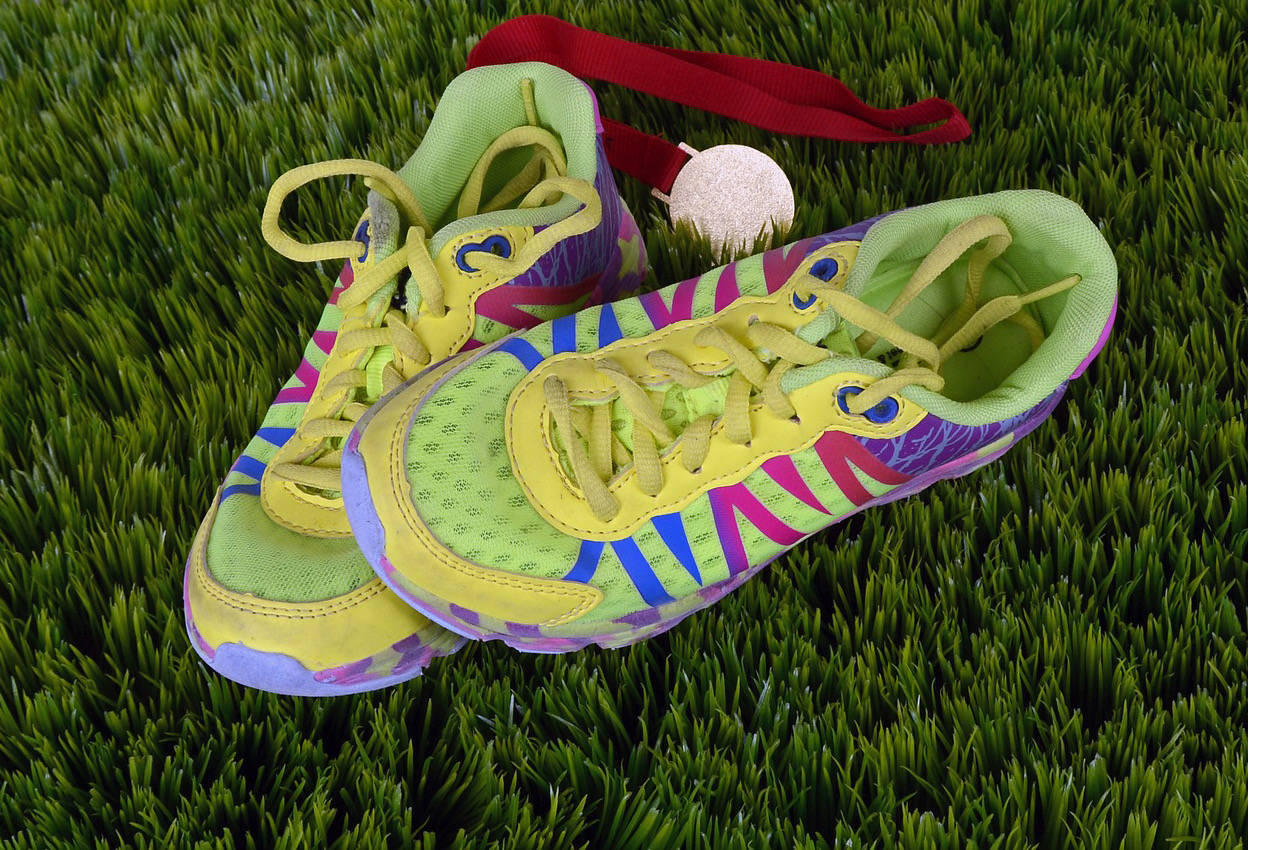“Have a look at these,” says my friend Sarah, placing a box of trainers onto my kitchen table. “Altra Escalante, zero drop. One hundred and twenty quid’s worth of running technology!”
I look at her, confused.
“Have you been invited to join the Kenyan distance running team?” I ask.
“Don’t be silly, I’m in training for June 23rd.”
I still look confused.
“Sports day? The Mothers’ Race? The race of the season!”
Of course. The Mothers’ Race. I breathe a sigh of relief. My children have left the zone where I am obliged to participate. Sarah however, started her family late and is in the full throes of the PTA.
But I remember it well.
Once upon a time, when mothers still wore pinnies and slept in rollers, the Mothers’ Race was a little bit of sadistic fun invented by games masters to ensure that women attending Sports Day couldn’t nod off in the sun behind their copy of Woman’s Weekly while their little Johnnies wobbled down the track with newly off-ration eggs.
Fast forward fifty years and, like everything else in British culture, it’s an altogether meaner, more competitive story.
Last year, then aged forty-two, Sarah came second in the Mothers’ Race. The mother who beat her is nearly ten years younger with a thirty-four inch inside leg.
These facts are immaterial as no handicapping system applies to novelty races, much to her dismay. Instead, she has chosen to approach the event as if it were the London Marathon, which explains the over-priced, hi tech trainers and the new obsession with Parkrun.
My own introduction to the Mothers’ Race came more than a decade ago when I was a mere filly.
I took the race at face value: a bit of a laugh before we broke open the picnic lunch and the tepid Prosecco.
“Shall we jog at the back and chat?” I remember asking my pal, Mandy who nodded in agreement.
We took our places in the line-up, me in my flip-flops, she in Dunlop Green Flash. (I could have sworn she hadn’t arrived in them.)
The starter’s gun sounded. Mandy disappeared into a cloud of dust; the dust I was eating.
I was left to amble in last, a picture of bewildered, lonely confusion.
It was only as I flip flopped across the tape that now lay fluttering on the ground, that I realised the Mothers’ Race is a front for so much more.
What I had failed to appreciate in this uber-competitive era, is that where you finish in the Mothers’ Race invites judgement not just of your running ability, but of your competence as a parent.
The faster you run, clearly the better able you are to bring up a child. The mother who breasts the line in first place therefore, is the best mother. And she even gets a medal from the Headteacher to prove it.
If you wanted evidence to support this unpalatable thesis, you’ve only to think of Princess Di.
In the face of self-confessed faithlessness, philandering and proper dodgy liaisons, she retained an unassailable position in the mothering stakes. She’d surely earned it, for who cannot recall her spirited win in the Mothers’ Race at her sons’ prep school in 1989?
Camilla, I imagine, was much less committed to seeing off the competition (why, she’d done that long ago!). I expect she watched Laura and Tom competing in the three legged race gasping on a fag outside the tea tent.
“So,” says Sarah, “ best advice? I mean I know it’s not the winning that matters but the taking part.”
I snort. “Tell that to Teresa May!”
“What we need,” I say pointedly, “is more people prepared to lose graciously.”
“What would you do?” She persists.
“Come last.”
“For goodness sake! Why would I do that?”
“So nobody else has to,” I reply.


